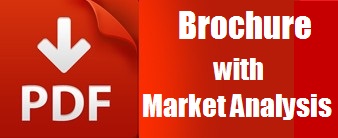
Roberto CAVALLO
International Association for the Environmental Communication
Title: PAYT (Pay-As-You-Throw) schemes – a key step for a circular economy and citizens involvement
Biography
Biography: Roberto CAVALLO
Abstract
Waste prevention, prepare for reuse and recycling are the three steps of European hierarchy of sustainable management of waste following European Directive 98/2008. Numerous local initiative demonstrate that the best performing results are obtains when different level of responsibility working together. The common interest is reduce the final disposal of unsorted urban waste, increasing quota of valuable waste and this is possible when the economical and financial streams are transparent and there is a direct influence of behaviour on tax. Different kinds of instruments are been developed during last year in order to calculate the quantity of urban (domestic and commercial) waste produced by the citizens. Best results are obtained through volume measure, using both bins and flexible bags. In village ore scattered area bags with bar code or other system of direct recognition could be best option in cost/benefit; in urban area, with important density population and commercial waste, RFID technology it seems to be best. The most frequent experiences in Italy and Europe are based on the volume of unsorted waste following the principle that more citizens use public services of collection more then pay, recent experience are computing also biowaste and packaging collection. PAYT schemes improve selective collection efficiency (i.e. low frequency, correct volume) reaching high percentage of selective collection, above 80%, with an excellent quality of materials collected (impurity less than 5%). PAYT introduce a high level of consciousness of citizens who change the buying behaviour, choosing product with less packaging, reusable, easy to separate, at the same time the shop improve their ecological offer. So PAY scheme is the best opportunity to create a relationship of mutual responsibility between the different actors of the municipal waste management.

